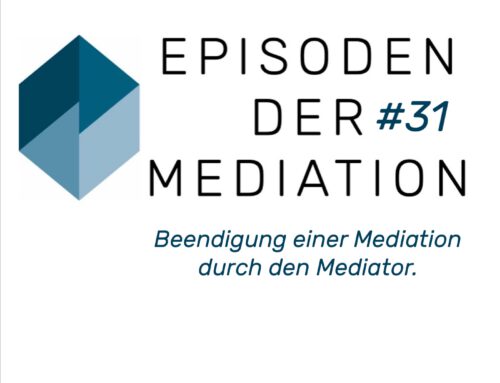Win-win or the triumph of the Harvard negotiation concept in mediation
A few weeks ago I wrote something about the different Styles of mediation and written them in three basic currents subdivided. It was helpful to distinguish between an emphatically factual style, a primarily procedural style and so-called transformative styles.
Today I would like to go into more detail about the so-called Harvard negotiation style. It is probably the most widespread way of thinking and conducting negotiations in practical terms, if it can be quantified at all. In any case, it seems to be the most widespread style within the mediation scene because no mediation training programme can avoid referring to the underlying Harvard negotiation concept in more detail. Even though it was not explicitly created for mediation, it is recommended by mediators all over the world.
It emerged from the Harvard Negotiation Studies, which were established in the course of diplomatic crisis situations during the Israeli-Palestinian negotiations at Camp David under Jimmy Carter from 1978 onwards.
Basic consideration of the Harvard negotiation style
All people negotiate every day and want to realise their personal wishes and goals. This happens in a wide variety of situations, often in passing. Rarely is there conscious negotiation or talk under this title. Negotiations are so commonplace that hardly anyone seems to think about them.
Negotiations are only referred to as difficult discussions in which a negative outcome is imminent or a general agreement has to be reached. There is a widespread belief that compromises have to be made. Job searches, job interviews, hiring staff, having to convince others to lend money or give money at high risk, asking other people for a risky contribution, such as consent or authorisation, or any other discussion situation that for some would be accompanied by a considerable increase in pulse rate.
As a result of negotiations, compromises often seem desirable or even necessary. Everyone has to take a step back or give up something. And if such compromises are not found, people switch to "toughness" and "intransigence" or to self-sacrifice and good-naturedness ("The smarter one gives, as we all know...").
The Harvard concept offers a third alternative, which combines this determination in the matter with sensitivity towards the negotiating partner. This negotiation approach is called the Harvard negotiation style, which is also used in the context of Mediations is applied.
Eliminate destructive negotiation dynamics
The Harvard Principle is probably the most important concept of fact-based mediation. It is based on the analyses of game theory conflict research, which destructive Negotiation dynamics have shown. For example, in difficult conversations, sooner or later it is thoughtlessly assumed that the negotiating partner is the problem - and not the common difference on the issue.
Very popular are such Personalisation of problems enriched with kitchen-psychological explanatory models: "He's just stubborn! He gets that from his father! He was like that too...".
The idea behind the Harvard concept is that if an economic rationality takes hold in the negotiation (place), a Win-win situation The idea that there is an optimal and objectively ascertainable solution that leads to a constructive solution (yes, exactly! "Win-win", the credo of mediation stems precisely from this style of negotiation!) The whole thing is based on the idea that an optimal and objectively ascertainable solution actually exists and that this can be found together in the negotiation or mediation process. Mediation can be found. For this reason, this solution is based on objective evaluation standards wanted.
Consistently along these lines, the mediation scene, for example, is characterised by the agreement that in the specific dispute not can be agreed is considered a failure. In this respect, the Harvard method can certainly appear "success-driven" to some mediators.
Approaches for a win-win situation
1. the Factual problems must be separated from the personalities of the negotiating parties. become.
The people are not the problem - even if they behave like that. This only tempts us to lose sight of the actual goal and to attach too much importance to personal animosities.
2. there must be Solution options developed from which to select and negotiate.
Creativity is required, especially when looking for options that ideally bring the greatest possible benefit to both sides. An attempt should be made not to fixate on the supposedly only conceivable solution.
3. the Interests of the parties involved should be disclosed and take centre stage, not their positions.
After all, it is interests that can bring people together and can be realised through cooperative implementation. Better than alone. That is the Core of the mediative approach!
4. to decide in favour of a solution criteria that are as neutral as possible (legal regulations, ethical standards, etc.). This principle is the reason why the Harvard method is described as fact-based.
This approach helps in the first instance, Bazaar negotiations in which "mere" haggling takes place.
Bargaining is fun, but only when there is little at stake. Or when others do it.
The Harvard concept, on the other hand, assumes that objective evaluation criteria enable the parties to maintain good relations with each other. They also protect against being put under moral pressure, as the negotiation can also be interrupted until the other party returns to a fact-based form of negotiation. As the focus is on interests and not positions, the parties involved are prevented from arguing their positions.
Active listening
However, the Harvard concept does not merely consist of calculating rules, but recognises, for example, the great value of a sustainable working relationship and a relaxed working atmosphere. This is why it places particular importance for success on the active listening in the negotiation or mediation process.
Develop understanding without having to agree
Another important point is to develop understanding for the other side without having to agree with everything. Understanding someone does not mean having to agree with their positions or views. However, understanding is enough to increase the willingness to co-operate.
For negotiations, this means that it is not a contradiction to be friendly and open to others while at the same time standing up for your own cause. "It is precisely because I appreciate you for your personality and your differences that I am willing to share my different views and values with you." - could be the interim message.
At the same time, it should be noted that the Harvard principles also serve to "frame" one's own emotions in negotiations and allow them to fade into the background. On the one hand, it is important to practise this and, on the other, to channel these emotions elsewhere if necessary and not push them completely into the background.
However, this training is worthwhile because critical negotiations result in gains for both sides that were not previously recognisable. And in this sense, the Harvard principle with a truly creative method. This is one of the reasons why it is ideal for dealing with tasks in mediations.
Have you personally had any experience with the Harvard method?
What has worked well for you in this context? I would be particularly interested to hear this at this point, but I would also be happy to receive any other comments and tips! Even if something didn't work as expected...





Leave A Comment